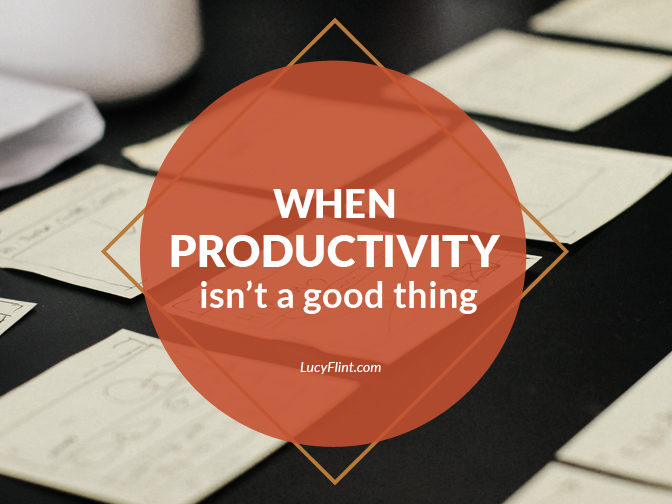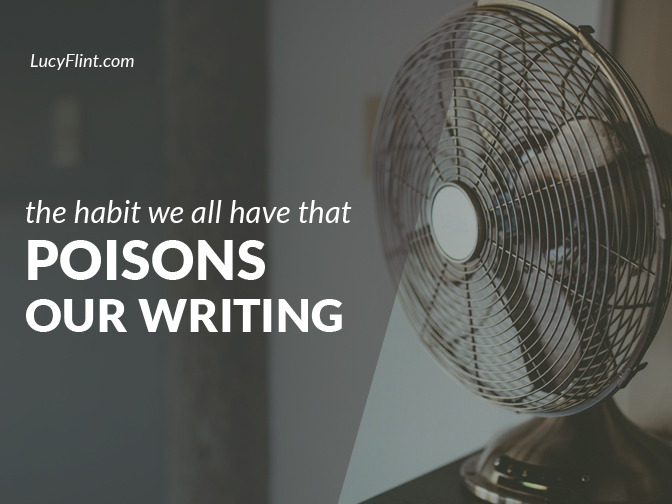When you dive into the writing life--especially if you're going full tilt, full time--you might experience culture shock. And frankly, it might be severe.
Wait a sec, you might be thinking. Isn't this taking the whole "travel" metaphor a bit far?
Nope.
When I was in college, I spent a semester studying in England. We were prepped with a discussion or two on culture shock before we left.
Okay. Things will be different, I thought. So I went with my teeth gritted a bit, expecting to enjoy my host country, but also to face a bit of culture shock as well.
Guess what. I had absolutely NO culture shock symptoms at all. I wanted to stay there forever. (Sniff. I love you, England.)
But fast forward to, oh, about 24 hours after college graduation: I developed a major case of culture shock. Which lasted about seven years.
Learning to check my instincts before crossing a road was SO EASY compared to navigating the full time novelist's life!
Culture shock + the writing life. Let's talk about it.
I love this description of culture shock, from the University of North Carolina - Greensboro. (Not my college, but they do an awesome job of discussing symptoms and adjustment.)
They define culture shock as "the way you react and feel when the cultural cues you know so well from home are lacking."
What do you think, lionhearted writer? Did your cultural cues shift when you started the writing life?
All the things that made sense in your normal job, or in school--when they disappeared and were replaced by the writing life's cues... how did that go for you?
I found that I was desperate for a syllabus. I wanted someone else to have a plan for my writing life. I missed feedback at every step of the way--from fellow students, from professors.
And I couldn't figure out why working all day and night was burning me out instead of getting stuff done. The harder I pushed, the worse things got.
Here's what I found: All the skills I had developed to do really awesome work in school were the exact skills that set me up to do really badly as a full time novel writer.
Seriously.
So did I get some major culture shock? Yup.
And not just metaphorically. I had the symptoms.
Check out that list on the U of NC page: I developed a BUNCH of them as a full time writer!
This is a little embarrassing, but seriously, I checked pretty strong on: tiredness, irritability, depression, crying for no reason, homesickness, and (ahem) hostility toward host nationals. (I hated hearing about other writers doing well. Like I said: embarrassing.)
I have finally crossed through that stage, but I think I could have passed through it much MUCH faster if I realized what the heck I was dealing with. I could have learned to adapt, I could have thought like an expat, instead of just fighting it all.
I love the tips for coping on that study abroad link. Seriously, these are GREAT for writers. Let's translate them into writer-speak:
Learn as much as possible about the writing life.
Not just the writing craft, but the writing LIFE.
That's a huge part of why I have this blog in the first place: because all the books on craft weren't helping me get better.
It was only when I learned more and more about how other writers survived, how other writers tick, how other writers navigate productivity and creativity... only then did I start to calm down, and figure this stuff out.
So what can you do?
Read writer's memoirs! Books about how other writers deal with this funny writing life. (The Writer's Desk is a gorgeous and very pick-up-able intro to the writing life.)
Gulp down interviews with other writers. (The website Writer Unboxed has an incredible archive of interviews. Read 'em all!!)
I will crawl over shards of glass to hand any writer a copy of Page after Page or Chapter after Chapter by Heather Sellers. More than any other books, these helped explain to me what it feels like to be a writer.
Find logical reasons for the cultural differences.
So, the writing life doesn't look like a bunch of other kinds of lives.
It is not the same thing as a full time student life. Or full time work with a boss and clear instructions. Okay?
If you've only ever been a student, or if you've only ever worked with fairly clear guidelines--you might feel like your identity has gone all shaky on you.
You might feel like you've been tossed in a lake with a pen and paper. (And if so, yup, that's right on track.)
It's a fluid kind of life, with room for creativity and curiosity. You learn how much discipline you need, and how to keep discipline from choking creativity. (And creativity from choking discipline!) You learn how to push yourself and how to let yourself rest.
And it's darned hard!
I spent so much time highlighting the differences between the writing life and my former life. And then I reinforced those differences by fighting the writing life. And fighting hard.
I kept thinking: it shouldn't be this way. It should be a lot more like college.
That kind of thinking didn't help me. At all. It kept me locked in culture shock for a long time:
I shouldn't have to have an apprenticeship. I should be able to write a perfect novel in a year. Other people should understand exactly what it is I do (and be encouraging, for pete's sake).
Creativity should follow neat, organized paths. I should be able to stay perfectly on my predicted schedule. Every day should be productive in a quantifiable, check-off-that-box kind of way.
That kind of thinking helped me graduate with honors. I did really great in school. So, yay. Yay for that. But it was time--past time--to let that thinking go.
To tuck those ideas, that way of working, in a box with some tissue paper, and put a freaking lid on it.
If, say, creativity followed neat and organized paths, guess what. IT WOULDN'T BE CREATIVITY. It might be, say, website coding, or architecture, or algebra. But it wouldn't be CREATIVITY.
See what I mean?
What about you? What are your biggest arguments against the creative writing life?
Maybe it's time to acknowledge that this kind of thinking helped you do whatever it is that you did before. Maybe it even helped you do really, really well. And that's great. Really.
But it will strangle your writing life. Time to let it go.
Don't whine about your new culture.
Ahem. Right? We need to resist the temptation to get together with other writers to have a big moaning festival.
I'm only one week into my No Whining Challenge, but I'm already discovering three great benefits to refusing to whine:
1) If I can't vent about something, I find that I can laugh about it. And not just in a bitter way, but I can genuinely find it funny. It's like all that whining energy puts on party hats and makes me laugh. I can't explain it. But it's a good thing.
2) A bigger sense of gratitude. When I'm not clouding my general outlook with a lot of complaining, my vision is clearer to see all the good stuff. Which has been pretty cool.
3) If something's really bugging me and I can't whine about it, I channel all that energy into just fixing it. Shocking, right? Instead of griping, I can, you know, DO something about it.
So instead of whining about the writing life (the instability! the disorganization! the many tempting chances to go insane!), find what's funny about it. What's genuinely humorous about the writing temperament, the quirkiness of what we do, the way writers talk and think.
See the freedom with gratitude.
And if something's really nagging at you--try to fix it.
Talk to someone who has acclimated to this new culture.
YES! Meet other writers! Seek friendships with the non-whining people who are navigating this life, and who are doing a decent job of it. Find 'em on Twitter, on Instagram, through other social media channels...
Or hey, talk to me, I'm right here! Ha ha! But seriously, leave a comment or catch me on Twitter @reallucyflint, and say hello. We can talk about this totally unusual writing life!!
Talk with your new writing friends about how your old cultural cues worked and how these new cues are so different.
Talk about how your sense of expectations changed, how success is totally different, how freedom sometimes feels like it's strangling you, how all those books on creativity make you feel squirmy.
And learn about how this other person has made their adjustments, what mindset tricks they use, how they think about it now. This can be so so helpful!
Know that you can make it.
You really can. (Heck, if I can do it, I'm pretty sure anyone can!)
If you're writing at all, if you're drawn to the writing life, then some part of you, somewhere in your personality and psyche, some part of you really will thrive in this life. Some part of you is urging you to jump in.
And the rest of you? The rest of you really can catch up. I promise.
The writing life is a pretty broad and forgiving thing, when you get used to it. There's a lot of room for variety. As you adapt, you'll find ways to make it your own. One day you might wake up and find that you're right at home, talking and giving directions like a native!
It helps if you aren't super strict with yourself as you adjust. Give yourself so much grace. Don't demand perfection. Don't try to push yourself harder when you're still learning the ropes.
That study abroad page has a list of character traits that are good for helping you adjust and cope: And even though they say that they're helping you travel to a new culture, I think that they are IDEAL for a writer's toolkit!
A tolerance for ambiguity? YUP.
Open-mindedness. Flexibility. Curiosity. Sense of humor. Ability to fail.
Yes to all that.
Look, friend. If you really want to be a writer, but are having the hardest time adjusting, I totally hear you.
Try this. It really is more than just a nifty metaphor this time. Try thinking of it as culture shock. You learned how to survive in your old culture, and you probably were really, really good at it.
But this is a new place.
Don't beat yourself up. The new culture simply won't look the same as the old, in so many ways. The cues are not the same.
Don't hold yourself to old standards when you're in a new land. At the very least, you'll be uncomfortable. At the worst, you'll be a bit of a wreck, kinda like me.
What is the thing that you trip over the most, the cultural cue that is the most frustrating and infuriating? The thing that makes you snap, and holler about how much you hate writing, you hate this crummy life? What is that thing?
Try to see it in light of this new culture. Maybe there's a reason things are different here. Maybe the reasons are even understandable, even good somehow. Learn how other writers made that adjustment. Make friends with writers who are adjusting right alongside you.
Practice flexibility. Practice your sense of humor. Let yourself fail.
And become a citizen of a new (and ultimately super wonderful!) culture.



















